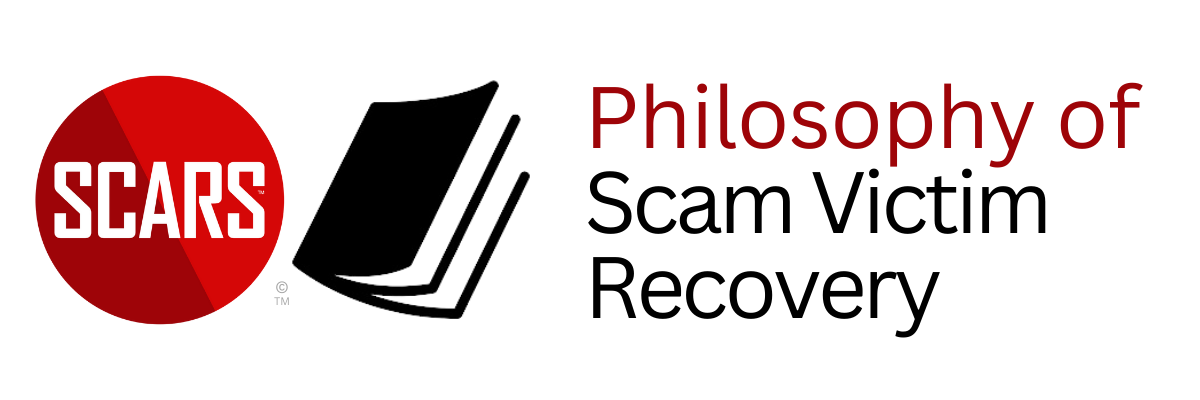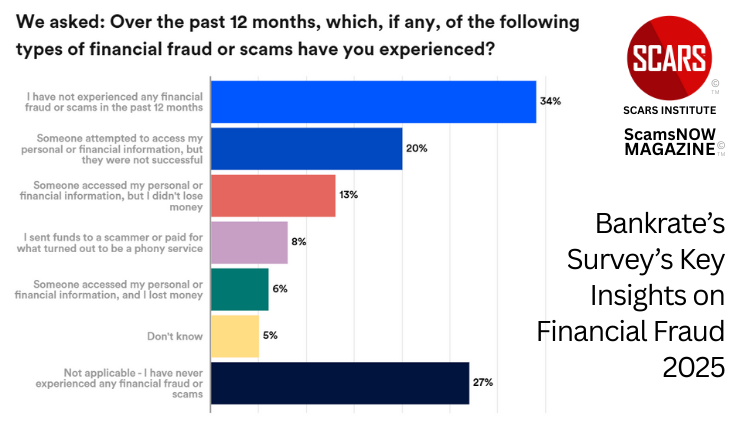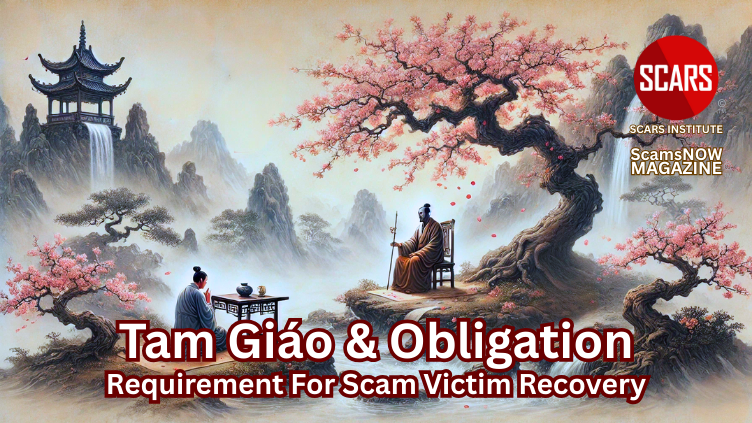Obligation – a Necessary Requirement for Scam Victim Recovery
Understanding Obligation to Yourself and Your Recovery as Part of the “Three Teachings” (Tam Giáo) of Vietnam
Primary Category: Scam Victim Recovery Philosophy
Intended Audience: Scam Victims-Survivors / Family & Friends
Author:
• Tim McGuinness, Ph.D., DFin, MCPO, MAnth – Anthropologist, Scientist, Polymath, Director of the Society of Citizens Against Relationship Scams Inc.
About This Article
The concept of obligation and commitment, as emphasized in the Three Teachings (Tam Giáo) of Vietnam—Buddhism, Confucianism, and Taoism—provides a meaningful framework for scam victims to approach their recovery. Buddhism teaches the necessity of self-compassion and emotional healing, Confucianism stresses duty to oneself and society, and Taoism encourages balance and adaptability in the healing process.
By integrating these principles, scam victims can commit to their recovery with structured actions such as practicing mindfulness, maintaining ethical conduct, creating a stable support system, and allowing healing to unfold naturally. This commitment to self-restoration ensures that victims do not remain trapped in suffering but instead transform their experience into personal growth and resilience. Recognizing recovery as both a moral obligation and a necessary step toward reclaiming stability allows scam victims to move beyond trauma, rebuild self-trust, and reengage with life in a way that honors both their past and their potential future.

Understanding Obligation to Yourself and Your Recovery as Part of the “Three Teachings” (Tam Giáo) of Vietnam
Background: The Religious Traditions of Vietnam
The dominant religious tradition in Vietnam is Buddhism, particularly Mahayana Buddhism, which has been the most influential spiritual tradition in the country for centuries. However, Vietnamese religious life is diverse and often syncretic, blending elements of Buddhism, Confucianism, Taoism, and ancestor worship—a combination sometimes referred to as the “Three Teachings” (Tam Giáo).
Other religious traditions in Vietnam include Cao Dai and Hoa Hao Buddhism. Additionally, folk beliefs and ancestor veneration play a crucial role in the daily spiritual lives of many Vietnamese people.
The Three Teachings (Tam Giáo) of Vietnam
The “Three Teachings” (Tam Giáo) in Vietnam—Buddhism, Confucianism, and Taoism—each offer distinct but interwoven perspectives on obligation and commitment. Together, they shape Vietnamese values regarding duty to family, society, and personal morality.
Buddhism: Commitment to Compassion and Ethical Living
Buddhism in Vietnam, primarily Mahayana Buddhism, teaches that individuals have a moral obligation to act with compassion, wisdom, and non-attachment. In terms of duty and commitment, Buddhist teachings emphasize:
Commitment to ethical conduct (sīla), which includes honesty, non-violence, and kindness in all relationships.
Obligation to relieve suffering through acts of generosity and compassion (karuṇā).
Commitment to personal enlightenment, which indirectly benefits society by promoting moral behavior and mindfulness.
Filial piety (hiếu đạo) as a spiritual duty, where honoring one’s parents and ancestors is considered a way to accumulate merit.
Confucianism: Obligation to Family, Society, and Authority
Confucianism heavily influences Vietnamese social structure, placing great emphasis on hierarchical relationships and duty. Key obligations include:
Filial piety (Hiếu – 孝): A deep, unwavering commitment to one’s parents and ancestors, requiring children to respect, obey, and care for them throughout life.
Loyalty (Trung – 忠): Devotion to one’s country, rulers, and superiors, emphasizing the responsibility of individuals to serve society with integrity.
Righteousness (Nghĩa – 義): Acting with moral integrity, fairness, and duty-bound honor in personal and social relationships.
Reciprocity and Social Harmony: Fulfilling obligations based on role and hierarchy—children obey parents, citizens respect leaders, and rulers act as moral exemplars.
Commitment in Confucianism is less about personal spiritual growth and more about fulfilling one’s role in a structured, well-ordered society.
Taoism: Commitment to Balance and Natural Harmony
Taoism in Vietnam complements the other two teachings by emphasizing natural balance (Dao – 道) and flowing with the rhythms of life rather than rigid obligations. While Taoism does not impose strict social duties like Confucianism, it still promotes commitment in ways such as:
Commitment to the Way (Đạo – 道): Living in harmony with nature and one’s inner self, seeking balance rather than forceful control.
Flexibility and Adaptation: Taoism teaches that true obligation is not about rigid adherence to rules but about responding to situations naturally and wisely.
Detachment from excessive ambition: Unlike Confucianism, which promotes duty-bound action, Taoism warns against excessive commitment to social status, wealth, or rigid roles, advocating for a simpler, more natural existence.
The Interwoven Concept of Obligation in Tam Giáo
The Vietnamese understanding of commitment and duty is a blend of these three traditions. Confucianism provides the social structure of obligations, Buddhism offers the moral and spiritual dimension of duty, and Taoism allows for flexibility and balance in fulfilling commitments.
For Vietnamese individuals, obligation is often seen as a lifelong, sacred duty to family, ancestors, and society, but it is also balanced by the Buddhist pursuit of inner peace and the Taoist principle of natural harmony.
Applying the Three Teachings (Tam Giáo) to Scam Victim Recovery
The Three Teachings (Tam Giáo)—Buddhism, Confucianism, and Taoism—provide a structured yet flexible approach to scam victim recovery by emphasizing personal responsibility, moral duty, and emotional balance. Scam victims, like any trauma survivors, must make an obligation and commitment to their own healing. By aligning their recovery process with these three philosophical traditions, they can find clarity, resilience, and emotional restoration.
Buddhism: Compassionate Self-Commitment to Healing
Buddhism teaches that suffering is a natural part of life (dukkha), but one can overcome it through self-awareness, ethical living, and mindful action. Scam victims can apply this by committing to self-compassion, ethical reflection, and gradual healing.
Actions to Align with Buddhist Principles:
Practice Self-Compassion – Instead of blaming yourself, recognize that everyone is vulnerable to deception. Treat yourself with the same kindness you would offer a friend in distress.
Let Go of Guilt and Shame – Understand that the scam was not a personal failing but a result of external manipulation. Release self-judgment through meditation, journaling, or therapy.
Commit to Mindfulness and Emotional Healing – Engage in mindfulness practices such as meditation, breathing exercises, or mindful walking to observe emotions without judgment.
Cultivate Inner Strength through Acceptance – Instead of dwelling on the past, accept what happened and focus on the present. This does not mean resignation but rather an acknowledgment that healing is possible.
Perform Acts of Generosity (Dana) – One way to transform suffering is through acts of compassion and giving. Consider helping others by sharing your experience, supporting fellow scam victims, or volunteering in a fraud prevention organization.
By following these steps, scam victims fulfill a Buddhist commitment to personal growth and enlightenment, turning suffering into a path toward wisdom.
Confucianism: Duty to Oneself and Society
Confucianism emphasizes obligation, structure, and moral responsibility. In scam victim recovery, this means treating recovery not as an option but as a duty to oneself, loved ones, and society.
Actions to Align with Confucian Principles:
Acknowledge Personal Responsibility for Recovery – While the scam was not your fault, your healing is your duty. Accept the responsibility to regain stability, emotional well-being, and financial security.
Rebuild Trust Through Ethical Conduct – Scam victims often struggle with distrust after being deceived. By acting with integrity, seeking honest relationships, and surrounding yourself with trustworthy people, you rebuild trust in society.
Commit to Structure and Routine – Confucianism values discipline and structure. Establishing a daily recovery routine—whether through therapy, journaling, education on scams, or financial planning—creates stability.
Strengthen Relationships with Loved Ones – In Confucian thought, relationships are sacred. Seek support from family and friends rather than isolating yourself. If shame or embarrassment prevents you from opening up, remember that connection is a fundamental part of healing.
Contribute to Community Awareness – Use your experience to educate others about scams. By doing so, you uphold the Confucian virtue of rectification of names (zhèngmíng – 正名)—ensuring that people understand truth and integrity.
By treating recovery as a moral and social duty, scam victims transform pain into a structured path of rebuilding personal and social honor.
Taoism: Embracing Healing as a Natural Flow
Taoism teaches that life is a natural flow (Dao – 道) and that resisting change only causes more suffering. Scam victims can use Taoist wisdom to let go of rigid expectations and embrace healing as a fluid, evolving journey.
Actions to Align with Taoist Principles:
Let Go of Resistance – Taoism teaches that suffering worsens when we fight against reality. Instead of clinging to thoughts of “This should not have happened to me,” allow yourself to accept the experience as part of life’s journey.
Move with the Flow of Recovery – Healing does not happen in a straight line. There will be setbacks, but recovery is a process, not a destination. Adapt to changes without frustration.
Practice Simplicity and Detachment – Avoid overwhelming yourself with too many recovery steps at once. Take small, mindful actions each day. If certain thoughts or attachments to past decisions cause suffering, gradually let them go.
Engage in Nature and Physical Movement – Taoism values harmony with nature. Scam victims can benefit from spending time outdoors, walking in natural surroundings, or practicing Tai Chi or Qi Gong—which help restore emotional balance.
Trust Your Intuition and Inner Wisdom – The scam may have damaged your confidence in your own judgment. Instead of doubting yourself, reconnect with your instincts by making small, mindful decisions each day.
By following Taoist principles, scam victims release resistance, embrace adaptability, and find peace in the natural progression of healing.
Integrating the Three Teachings into Scam Victim Recovery
Each of the Three Teachings (Tam Giáo) offers unique but complementary guidance. Victims can integrate these teachings into their recovery process in the following ways:
Buddhism: Practice self-compassion, mindfulness, and emotional healing through meditation and acceptance.
Confucianism: Treat recovery as a duty to oneself and society, creating structure, discipline, and ethical conduct.
Taoism: Flow with the natural rhythms of healing, releasing resistance, and finding peace in gradual progress.
By committing to their recovery in a holistic and intentional way, scam victims can transform their trauma into a path of wisdom, resilience, and personal growth.
Obligation and Commitment
The Foundation of Recovering from the Emotional Trauma of a Relationship Scam
Recovering from the emotional and psychological trauma of a relationship scam requires more than just time—it demands an unwavering sense of obligation and commitment to your own healing. Scams inflict deep wounds, not only through financial loss but also by undermining your trust, self-worth, and sense of security. To move forward, you must take an active role in your recovery, dedicating yourself to the process with the same level of determination that you would apply to rebuilding any other part of your life after a crisis.
Recognizing Recovery as a Personal Responsibility
The first step in recovery is recognizing that healing is not passive. While the trauma of being scammed was something inflicted upon you, the responsibility for recovering from it lies with you. No one else can do this work on your behalf. Family, friends, and professional support can guide you, but your commitment to the process is what will ultimately determine your success.
This means making a conscious decision to engage in recovery, even when it feels difficult. Healing will not happen overnight, and it will not follow a straight path. There will be setbacks, moments of doubt, and periods of emotional distress. However, if you remain committed to the journey, progress will come.
The Importance of Consistency and Discipline
Obligation and commitment are not about temporary motivation—they require consistent effort. Just as in physical rehabilitation after an injury, emotional recovery demands regular, intentional work. You must create habits that support your healing, including:
Engaging in structured recovery programs – Programs like the SCARS 120 Recovery Program provide step-by-step guidance on how to work through trauma and regain emotional stability. Committing to a structured program ensures that you stay on track and do not become overwhelmed.
Practicing self-care regularly – Emotional recovery is physically exhausting. Establishing routines that prioritize sleep, nutrition, and relaxation is essential to maintaining the energy needed to heal.
Journaling and self-reflection – Writing down your thoughts and emotions can help you process what has happened and track your progress over time. It also allows you to identify patterns in your thoughts and behaviors that may need to be addressed.
Developing a strong support network – While recovery is a personal responsibility, surrounding yourself with others who understand your experience can provide motivation and reinforcement. This includes participating in scam victim support groups, therapy, or engaging with trusted friends and family members.
Overcoming Resistance and Emotional Roadblocks
Committing to recovery does not mean you will not experience resistance. Many scam victims struggle with self-doubt, guilt, and emotional exhaustion. Some feel that they do not deserve to heal, while others become overwhelmed by the magnitude of their loss.
To overcome these roadblocks, you must reframe your mindset. Recovery is not about erasing the past but about reclaiming your future. Every step you take—no matter how small—is an act of self-respect and self-restoration. The key is to acknowledge negative emotions but not allow them to dictate your actions.
When you feel like giving up, remind yourself why recovery matters. Your life, well-being, and future happiness depend on your willingness to commit to healing. Recognizing your obligation to yourself is not selfish—it is necessary.
Turning Commitment Into Long-Term Growth
True recovery is not just about moving past the pain of the scam but about emerging from it stronger and wiser. If you approach healing with discipline and perseverance, the lessons learned from this experience can lead to profound personal growth.
This might mean developing a greater awareness of manipulation tactics, strengthening emotional resilience, or building a life that is more aligned with your values. Commitment to healing allows you to regain control, not just over your emotions, but over your future decisions and relationships.
Final Thoughts
Recovery from a relationship scam is not something that happens passively or automatically—it is a process that requires obligation, commitment, and personal accountability. Healing is a choice you must make every day, even when it is difficult. By dedicating yourself to structured recovery practices, staying consistent, and overcoming emotional roadblocks, you can rebuild your life and reclaim your sense of self. In the end, your commitment to healing will define your future far more than the scam ever could.
-/ 30 /-
What do you think about this?
Please share your thoughts in a comment below!
Statement About Victim Blaming
SCARS Institute articles examine different aspects of the scam victim experience, as well as those who may have been secondary victims. This work focuses on understanding victimization through the science of victimology, including common psychological and behavioral responses. The purpose is to help victims and survivors understand why these crimes occurred, reduce shame and self-blame, strengthen recovery programs and victim opportunities, and lower the risk of future victimization.
At times, these discussions may sound uncomfortable, overwhelming, or may be mistaken for blame. They are not. Scam victims are never blamed. Our goal is to explain the mechanisms of deception and the human responses that scammers exploit, and the processes that occur after the scam ends, so victims can better understand what happened to them and why it felt convincing at the time, and what the path looks like going forward.
Articles that address the psychology, neurology, physiology, and other characteristics of scams and the victim experience recognize that all people share cognitive and emotional traits that can be manipulated under the right conditions. These characteristics are not flaws. They are normal human functions that criminals deliberately exploit. Victims typically have little awareness of these mechanisms while a scam is unfolding and a very limited ability to control them. Awareness often comes only after the harm has occurred.
By explaining these processes, these articles help victims make sense of their experiences, understand common post-scam reactions, and identify ways to protect themselves moving forward. This knowledge supports recovery by replacing confusion and self-blame with clarity, context, and self-compassion.
Additional educational material on these topics is available at ScamPsychology.org – ScamsNOW.com and other SCARS Institute websites.
-/ 30 /-
What do you think about this?
Please share your thoughts in a comment below!
2 Comments
Leave A Comment
Important Information for New Scam Victims
- Please visit www.ScamVictimsSupport.org – a SCARS Website for New Scam Victims & Sextortion Victims.
- SCARS Institute now offers its free, safe, and private Scam Survivor’s Support Community at www.SCARScommunity.org – this is not on a social media platform, it is our own safe & secure platform created by the SCARS Institute especially for scam victims & survivors.
- SCARS Institute now offers a free recovery learning program at www.SCARSeducation.org.
- Please visit www.ScamPsychology.org – to more fully understand the psychological concepts involved in scams and scam victim recovery.
If you are looking for local trauma counselors, please visit counseling.AgainstScams.org
If you need to speak with someone now, you can dial 988 or find phone numbers for crisis hotlines all around the world here: www.opencounseling.com/suicide-hotlines
Statement About Victim Blaming
Some of our articles discuss various aspects of victims. This is both about better understanding victims (the science of victimology) and their behaviors and psychology. This helps us to educate victims/survivors about why these crimes happened and not to blame themselves, better develop recovery programs, and help victims avoid scams in the future. At times, this may sound like blaming the victim, but it does not blame scam victims; we are simply explaining the hows and whys of the experience victims have.
These articles, about the Psychology of Scams or Victim Psychology – meaning that all humans have psychological or cognitive characteristics in common that can either be exploited or work against us – help us all to understand the unique challenges victims face before, during, and after scams, fraud, or cybercrimes. These sometimes talk about some of the vulnerabilities the scammers exploit. Victims rarely have control of them or are even aware of them, until something like a scam happens, and then they can learn how their mind works and how to overcome these mechanisms.
Articles like these help victims and others understand these processes and how to help prevent them from being exploited again or to help them recover more easily by understanding their post-scam behaviors. Learn more about the Psychology of Scams at www.ScamPsychology.org
SCARS INSTITUTE RESOURCES:
If You Have Been Victimized By A Scam Or Cybercrime
♦ If you are a victim of scams, go to www.ScamVictimsSupport.org for real knowledge and help
♦ SCARS Institute now offers its free, safe, and private Scam Survivor’s Support Community at www.SCARScommunity.org/register – this is not on a social media platform, it is our own safe & secure platform created by the SCARS Institute especially for scam victims & survivors.
♦ Enroll in SCARS Scam Survivor’s School now at www.SCARSeducation.org
♦ To report criminals, visit https://reporting.AgainstScams.org – we will NEVER give your data to money recovery companies like some do!
♦ Follow us and find our podcasts, webinars, and helpful videos on YouTube: https://www.youtube.com/@RomancescamsNowcom
♦ Learn about the Psychology of Scams at www.ScamPsychology.org
♦ Dig deeper into the reality of scams, fraud, and cybercrime at www.ScamsNOW.com and www.RomanceScamsNOW.com
♦ Scam Survivor’s Stories: www.ScamSurvivorStories.org
♦ For Scam Victim Advocates visit www.ScamVictimsAdvocates.org
♦ See more scammer photos on www.ScammerPhotos.com
You can also find the SCARS Institute’s knowledge and information on Facebook, Instagram, X, LinkedIn, and TruthSocial
Psychology Disclaimer:
All articles about psychology and the human brain on this website are for information & education only
The information provided in this and other SCARS articles are intended for educational and self-help purposes only and should not be construed as a substitute for professional therapy or counseling.
Note about Mindfulness: Mindfulness practices have the potential to create psychological distress for some individuals. Please consult a mental health professional or experienced meditation instructor for guidance should you encounter difficulties.
While any self-help techniques outlined herein may be beneficial for scam victims seeking to recover from their experience and move towards recovery, it is important to consult with a qualified mental health professional before initiating any course of action. Each individual’s experience and needs are unique, and what works for one person may not be suitable for another.
Additionally, any approach may not be appropriate for individuals with certain pre-existing mental health conditions or trauma histories. It is advisable to seek guidance from a licensed therapist or counselor who can provide personalized support, guidance, and treatment tailored to your specific needs.
If you are experiencing significant distress or emotional difficulties related to a scam or other traumatic event, please consult your doctor or mental health provider for appropriate care and support.
Also read our SCARS Institute Statement about Professional Care for Scam Victims – click here
If you are in crisis, feeling desperate, or in despair, please call 988 or your local crisis hotline – international numbers here.
More ScamsNOW.com Articles
A Question of Trust
At the SCARS Institute, we invite you to do your own research on the topics we speak about and publish. Our team investigates the subject being discussed, especially when it comes to understanding the scam victims-survivors’ experience. You can do Google searches, but in many cases, you will have to wade through scientific papers and studies. However, remember that biases and perspectives matter and influence the outcome. Regardless, we encourage you to explore these topics as thoroughly as you can for your own awareness.















![NavyLogo@4x-81[1] Tam Giáo and Obligation - a Necessary Requirement for Scam Victim Recovery - 2025](https://scamsnow.com/wp-content/uploads/2025/04/NavyLogo@4x-811.png)









![scars-institute[1] Tam Giáo and Obligation - a Necessary Requirement for Scam Victim Recovery - 2025](https://scamsnow.com/wp-content/uploads/2025/04/scars-institute1.png)

![niprc1.png1_-150×1501-1[1] Tam Giáo and Obligation - a Necessary Requirement for Scam Victim Recovery - 2025](https://scamsnow.com/wp-content/uploads/2025/04/niprc1.png1_-150x1501-11.webp)
This article drives home the message that in order to heal and recover, you must commit to taking care of yourself by making yourself a priority using mindfulness, meditation, journaling, breathing exercises, etc. You will heal and survive when you take care of yourself, one step at a time.
“While the trauma of being scammed was something inflicted upon you, the responsibility for recovering from it lies with you.”
This article explained the concept of Tam Giáo beautifully! When I was a toddler, Tam Giáo became the center of my education. My parents and grandparents used story telling to teach me these principles. It became the foundation of my upbringing. As I grew older,I kept these teachings at the forefront of everything I do. It is a way of living my truths.
If I may add, these principles are to be internalized and one’s level of understanding ( there are many and I am far from perfect) are expressed in daily actions. The better the heartfelt action will demonstrate a deeper understanding of the principle. That one’s goal is to have a deeper understanding of each ( Tam) means three, (Giáo) means to teach or educate. It is easier said than to put into practice. In my family, the eldest male is to carry on the tradition and Tam Giáo for the entire family. What he does or does not do reflects on the family honor. Bridging the gap between past, present and future is where I am working diligently. I find myself walking a fine line between past and present and bridging that gap is not always easy.